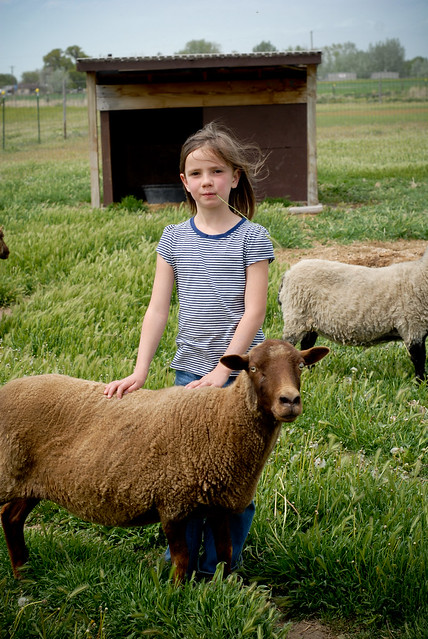Meat is just meat now. Marketing terms and tactics have so brilliantly washed slaughter, corpse and carcass from the public mind that the mere idea of our dinner having had a face, or having experienced death as a means to provide us with sustenance, is generally repulsive and revolting. This sterility is intentional and is generational.
Every country I have ever visited displayed a very different version of plating and presenting. The opposite, in fact, from the whitewashed presentation of foodstuffs I was accustom to. As I visited an Asian foods market in Russia I remember questioning the validity and sterility of the foodstuffs- specifically the spices, nuts and flours because they sat in the open air in large jugs and vats. I was accustom to plastics and texts wrapping my food in an originless security blanket of clean, appropriate, regulated.
This delightful place was filled with tradition and history. Colorful spices, textured cheeses and whole dried fish and flesh hung above brilliantly dressed Russian girls who stood dead pan while customers filed in and out hunting and gathering. There, the process is still very much a part of the pallet. The grower, the shape, the weight and texture all play into the culinary decisions of much of the undeveloped and developed worlds. There is a certain transparency that most modern Americans grow a bit suspicious of- we like wrappings and presentation.
Last year Erin and I participated in the full slaughter of a 2 year old turkey. I loved the experience. It seemed right. It was clean and respectful and I never once felt emotions of disgust or the repulsions of gore. I wrote about it as a passion-filled nouveau vegetarian but, after nothing short of 30 or so edits I let it sit in the drafts folder where it has been collecting dust ever since. Rather than experience catharsis through my writings I found solitude in Safran-Foer's "Eating Animals" and realized that the problem of being conscious of what you eat is a weighty one.
Tonight I watched the video below which reminded me. It reminded me of how far we have gotten away from the common, the necessary, the prices we pay to acquire what we want.
The warning of graphic content is rarely attached to things of true graphic nature like stories on the five o'clock news of child abuse, our troops being slaughtered, women being constantly and consistently sexualized and objectified. Isn't that one of the follies and uglinesses of the modern world? Forgetting? Isn't it one of the most repetitive and punctuated goals of most spiritual works? And yet we embrace forgetting and pass it off as progress.
We lose something when we forget don't we? We lose something when something else distracts, detracts or diminishes our value of the forgotten. We lose fat on waxed papers giving way to Pam sprays and other such nonsense. We lose color and relationships and we most certainly lose value and appreciation. We sacrifice spiritual strength and financial fortitude for instant gratifications.
I am not suggesting that progress is harmful or valueless. I am merely suggesting that we not be so excited and anxious for the next best thing. As Dotter opened her pile of three year old gifts today she barely had the wrapping torn when she was looking for the next "heavy heavy hang over" reward. I took her aside and tried to remind her of the delight in the now, in the one gift. God help me teach my children to see something in the now.
Here's the thing about the past. It used to have life there. The breast and drumsticks used to be legs and chests. The uniform box-shaped, genetically-modified tomatoes used to be filled with ridges and rivets that we laughed at and delighted in their season. We saw God and the miracles of natural science in the creation and we appreciated it.
The modern American business is expert at finding "problems" in our work and creating solutions to those problems. We call these opportunists offerings brilliant and we line up out the door in hopes to trade in work for ease. Experts define and convince us of our "problems" and laugh all the way to the bank. Remember the Sneeches don't we?
Take for example Bisquick who, bless their hearts, did not solve the 1930's housewife's dilemma over creating buttery bisquits and pancakes- they created a substitute. A tasteless, bland substitute that most of us are happy to accept. But, pardon me, at what cost? As with anything taking the work from food also removes the reward. For isn't it true that when we know the work (and do that work) that goes into something we become more, and not less appreciative? As we test and try, fix and finagle we enrich our reward and inject value into our experiences? For me- yes.
And so, I am interested. I am interested in what my grandparents were used to. I am interested in the old ways, the old world, the forgotten solved problems. For time has told me that some of the greatest satisfactions of life are unlocked by revisiting discarded processes and practices.
*Many thanks to Robby O Brien who helped me remember that loose is not the way to spell lose. And thank you to the rest of you who turned a blind eye. And thank you to me for writing at 1 am.


Very thought provoking, to say the least. So true that with what is termed as convenience, we conveniently lose sight of the bigger, sometimes more important, picture. And, when we go back to the more inconvenient ways, we actually find that things were better.
ReplyDeletemore and more and more and more of your writing. i love it. it motivates, makes me think, makes me stop. i love you.
ReplyDelete